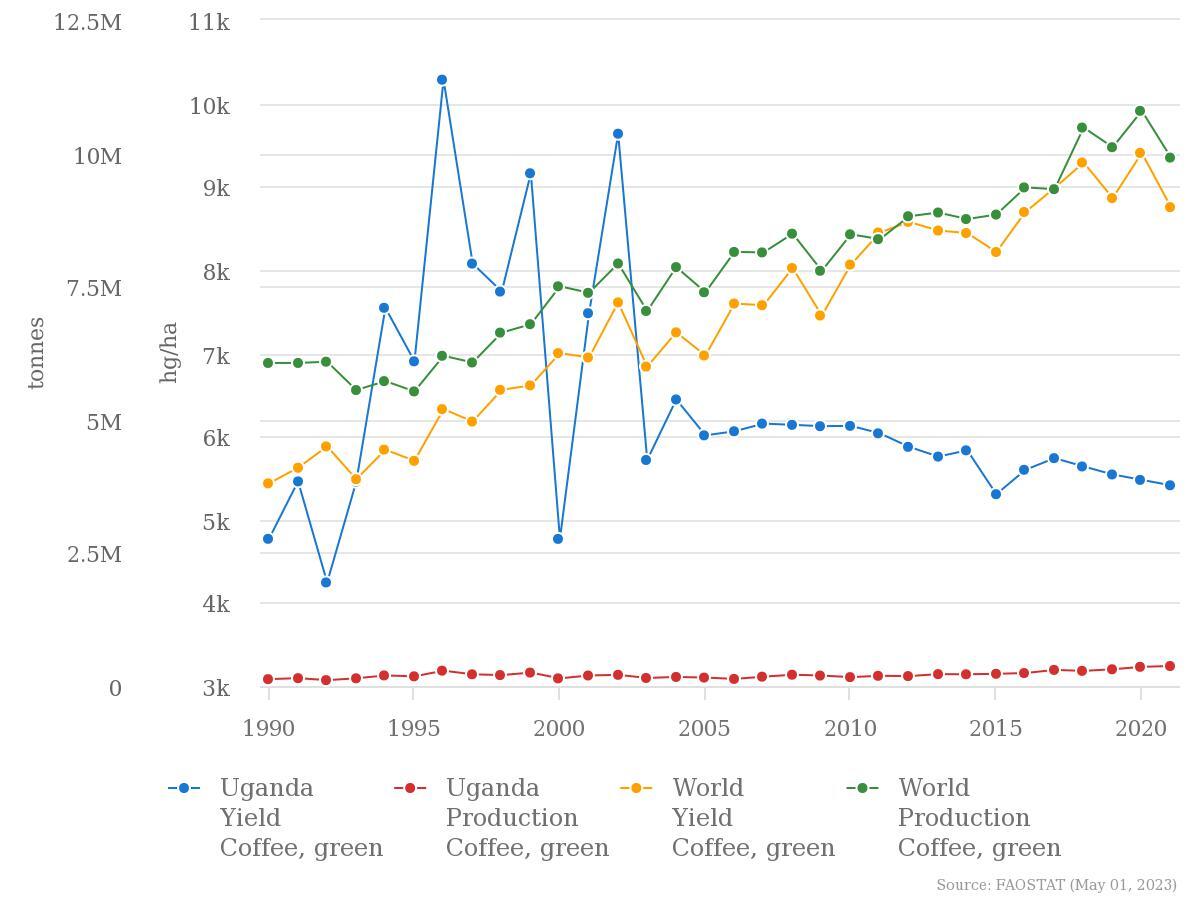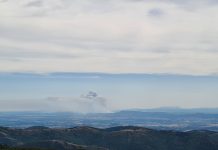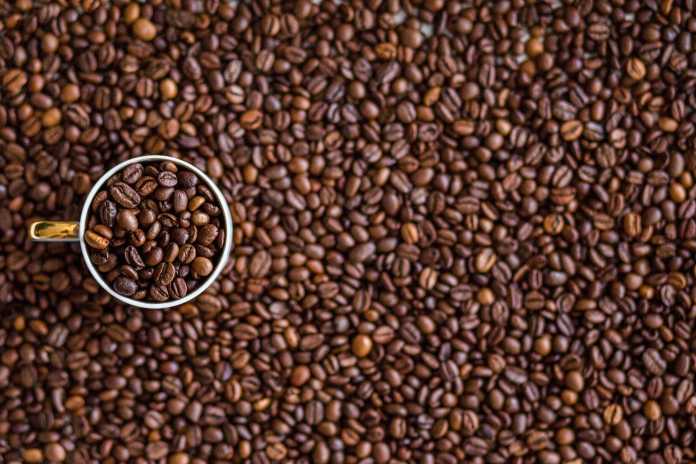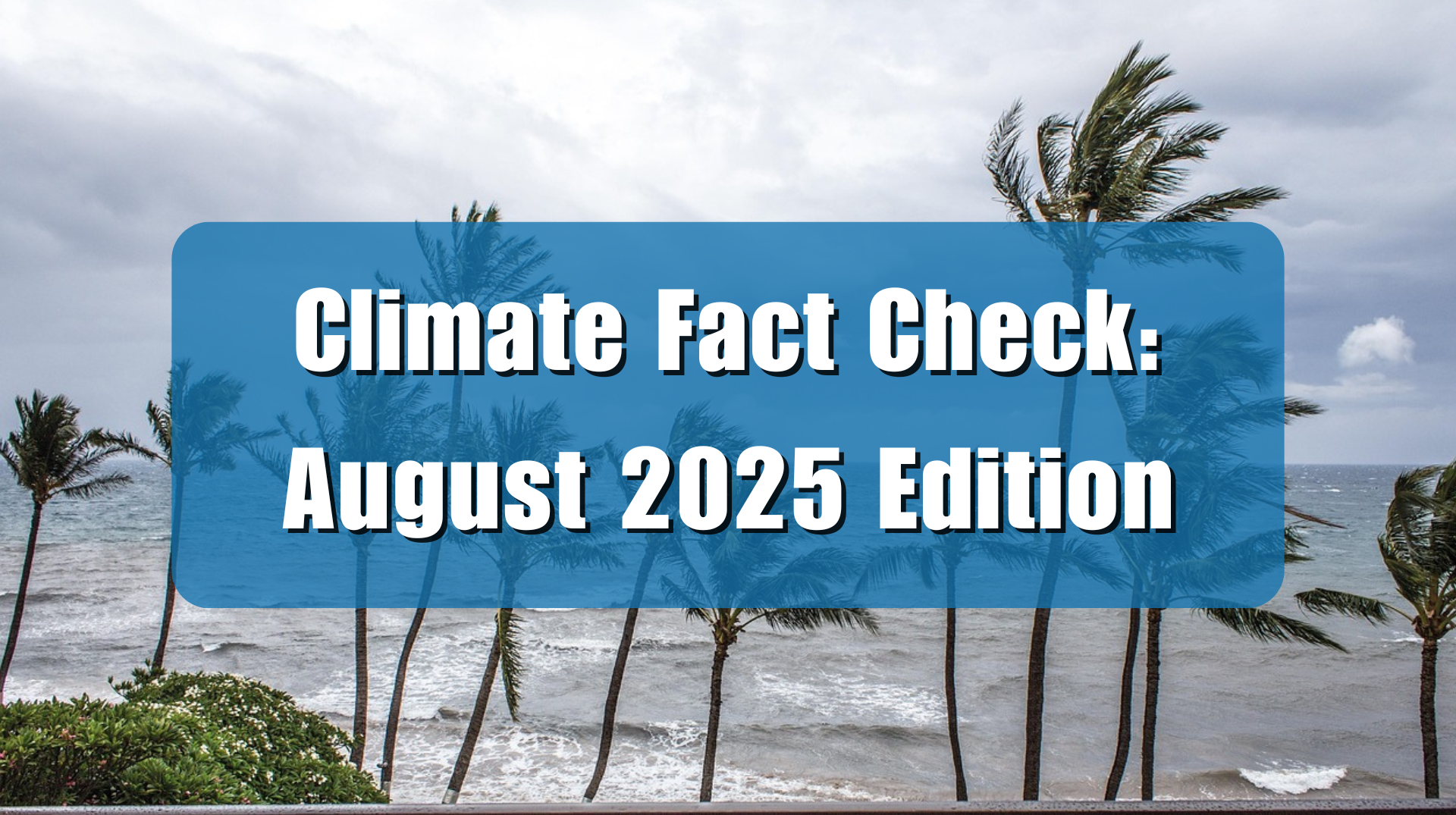The New York Times (NYT) recently posted an article claiming that climate change threatens popular coffee cultivars, while describing the rising popularity in Uganda of a different coffee variety that is supposedly more resistant to drought and high temperatures than the top two varieties. Data indicates the coffee variety that Uganda is promoting is unnecessary; it certainly hasn’t improved Uganda’s coffee yields. By contrast, worldwide coffee trends are very positive amid modest global climate change.
The NYT article, “What Climate Change Could Mean for the Coffee You Drink,” focuses on a rising coffee strain that is not new but is becoming more popular, called Liberica excelsa, in Uganda. While this coffee is grown in many parts of the world, it is native to Central African tropical rainforest regions.
The NYT asserts that the two most popular kinds of coffee, Arabica and the less-expensive robusta, “are at grave risk in the era of climate change.” Liberica excelsa is said to be better at withstanding “the heat, drought and disease supersized by global warming.” Ugandan farmers are expanding production of this strain on their coffee plantations.
According to the United Nations’ Food and Agricultural Organization (FAO) data, Ugandan coffee yields have indeed suffered in recent years, dropping precipitously from the peaks experienced in the 1990s and early 2000s, even as production overall climbed. (See Figure below)

By contrast, although the FAO does not break coffee data by type, in general coffee worldwide has seen a gradual climb in both production and yield. World production of coffee has broken records at least 12 times in the last 21 years, and world yield has likewise broken records 12 times.
Indeed, between 1990 and 2021, the last year for which data is currently available coffee yields increased by nearly 56 percent and coffee production increased approximately 64 percent. The world records for coffee production and yield were set as recently as 2020.
Clearly, despite modest warming, coffee production and yields around the world are doing well. As shown in a Climate Realism post, here, Eastern African nations’ combined coffee production has been increasing. Coffee is a tropical plant to begin with, with Arabica originating in the humid, hot rainforests of Ethiopia. Drought logically will impact these plants, especially if they are being cultivated outside of a rainforest biome.
Despite NYT’s attempted fearmongering and struggling coffee production in Uganda, worldwide, coffee production is steadily rising. The mainstream media’s false claims about climate change harming coffee production is not new; Climate Realism has debunked similar claims across the mainstream media, including here, here, and here, among other instances.
Also, one coffee specialist quoted by The NYT says that Liberica excelsa is a more aromatic and “higher quality” coffee than the currently popular robusta, so perhaps besides drought hardiness, there is another good reason to see more Liberica in stores. Time will tell if that variety ends brings more success to the farmers attempt which grow it. In the meantime, it doesn’t appear that coffee at large is going anywhere, any time soon.






















Thank you Linnea for representing the truth.. not just about coffee. I get frustrated and discouraged with the perveying of falsehoods and the impact that has on an ill or mal-informed populace . I am in the process of reading book # 14 regarding climate change. I say that not to boast but to emphasize the point that, I wish more people would read and educate themselves regarding
“ anthropogenic climate change “.
I am no scholar but will try my utmost to get informed.
I am also not a high profile person but I will share…. as I have done with yours and Anthony Watts articles.. on Facebook.
Thankyou again.
Rob Wood
“What Climate Change Could Mean for the Coffee You Drink,”
“Cimate Change Could Mean”
“Could Mean”
“Could”
Oh. Yeah.
I think that “in the old days”, page space, ink, and pay-by-the-word constrained newspapers to careful word choice (Twitter?). Would space and word length limitations affect content, like avoiding “maybe”, “might” and “could”?